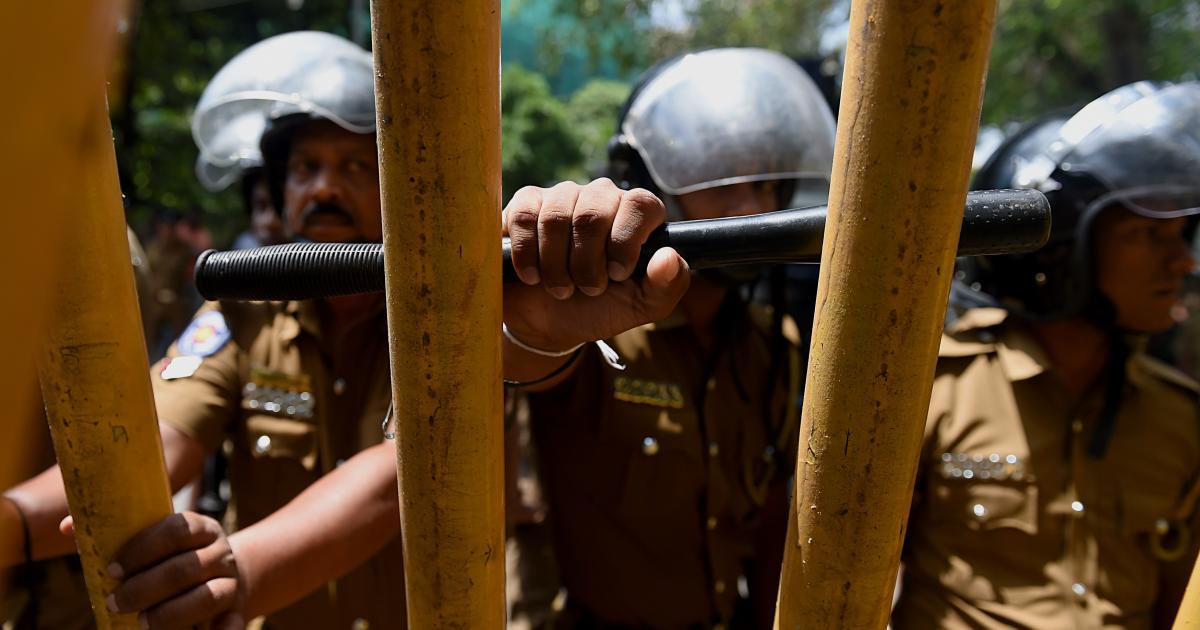Landmark ruling raps Police over Matara schoolgirl unlawful arrest case.
Reacting to the growing abuse of power by law enforcement authorities, the Supreme Court, in a landmark ruling, has issued 20 guidelines to be followed by law enforcement authorities for the secure and advancing the rights of the public. This came as part of the SC judgement in a Fundamental Rights petition filed by a minor girl who was a grade 10 student at the time the alleged fundamental rights violation by police took place in 2012.
The Supreme Court ruled that Chief Inspector Waruni Bogahawatta of Matara police station was responsible for the minor girl’s unlawful arrest and deprivation of her liberty, unjustified detention without producing her before a Magistrate and subjecting her to degrading treatment while she was questioned as to whether she was sexually molested by the Chairman of the Akuressa Pradeshiya Sabha.
A three-judge bench comprising Justices Buwaneka Aluwihare, Priyantha Jayawardena and Vijith K. Malalgoda, ordered the Inspector General of Police to follow following guidelines securing and advancing the rights of the public that are recognized under the Constitution and under the law. The Supreme Court observed that the Guidelines must reflect the legal safeguards in our law, international instruments and global best practices.
(01). Law Enforcement Officials shall respect and protect human dignity and maintain and uphold the human rights of all persons.
(02). Law enforcement officials shall respect the principles of legality, necessity, non-discrimination, proportionality and humanity.
(03). Law enforcement officials shall at all times protect and promote, without discrimination, equal protection of law. All persons are equal before the law, and are entitled, without discrimination, to equal protection of the law.
(04). They shall not unlawfully discriminate on the basis of race, gender, religion, language, colour, political opinion, national origin, property, birth or other status.
(05). It shall not be considered unlawful or discriminatory to enforce certain special measures designed to address the special status and needs of women (including pregnant women and new mothers), juveniles, the sick, the elderly, and others requiring special treatment in accordance with international human rights standards.
(06). Children are to benefit from all the human rights guarantees available to adults. In addition, children shall be treated in a manner which promotes their sense of dignity and worth; which facilitates their reintegration into society; which reflects the best interests of the child; and which takes into account the needs of a person of that age.
(07). Detention or imprisonment of children shall be an extreme measure of last resort, and detention shall be for the shortest possible time.
(08). Children shall be detained separately from adult detainees.
(09). Detained children shall receive visits and correspondence from family members.
(10). Law Enforcement Officials shall exercise due diligence to prevent, investigate and make arrests for all acts of violence against women and children, whether perpetrated by public officials or private persons, in the home, in the community, or in official institutions.
(11). Law Enforcement Officials shall take rigorous official action to prevent the victimization of women, and shall ensure that revictimization does not occur as a result of the omissions of police or gender-insensitive enforcement practices.
(12). Arrested or detained women shall not suffer discrimination and shall be protected from all forms of violence or exploitation.
(13). Law Enforcement Officials shall not under any circumstance use Torture and other cruel, inhuman or degrading treatment.
(14). No one shall be subjected to unlawful attacks on his or her honour or reputation.
(15). Law Enforcement Officials shall at all times treat victims and witnesses with compassion and consideration.
(16). Law Enforcement Officials shall at all times promptly inform anyone who is arrested of reasons for the arrest.
(17). Law Enforcement Officials shall maintain a proper record of every arrest made. This record shall include: the reason for the arrest; the time of the arrest; the time the arrested person is transferred to a place of custody; the time of appearance before a judicial authority; the identity of involved officers; precise information on the place of custody; and details of the interrogation.
(18). Anyone who is arrested has the right to appear before a judicial authority for the purpose of having the legality of his or her arrest or detention reviewed without delay.
(19). Law Enforcement Officials as far as possible shall take every possible measure to separate juveniles from adults; women from men; and non convicted persons from convicted persons.
(20). Law Enforcement Officials shall at all times ensure to obey and uphold the law and these rules.
DN / Lakmal Sooriyagoda
Above image from HRW.
